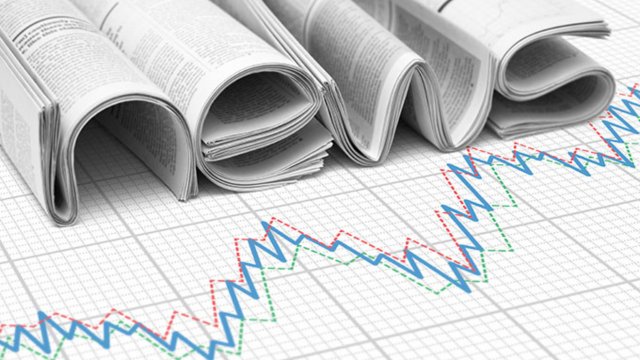Policy Meetings Today at Bank of England and European Central Bank; Tech Stock Selloff Continues; Gold, Silver Consolidate, Silver Looks Weak; Bitcoin Falls to 15-Month Low; Yen Weaker Ahead of Japan Election; Prediction Markets See No US Strike on Iran as Talks to Start Tomorrow
The following Forex news reports are the latest developments of the Forex market. The news reports are updated frequently and include all the events that affect the foreign exchange trading industry.
Most Recent
Discover how blockchain-based prediction markets like Polymarket are revolutionizing global forecasting with $44 billion in trading volume, outperforming traditional polls and transforming decision-making across finance, politics, and sports.
Gold, Silver Recover, Especially Gold; US / Asia Stock Markets Sell Off on Tech Dump; Bitcoin Rebounds from Fresh 1-Year Low; Prediction Markets See No US Strike on Iran as Talks Reportedly Shift to Oman
Top Regulated Brokers
The Reserve Bank of Australia raised the cash rate by a quarter-point to 3.85% at today’s meeting.
RBA Raises Cash Rate to 3.85%, Aussie Jumps; Gold, Silver Recovers; Stock Markets Rising; Bitcoin Remains Weak Below $81k; Prediction Markets See No US Strike on Iran as Talks to Begin
Gold, Silver Bubble Keeps Deflating With Strong Drops; Stock Markets Falling; Bitcoin Looking Bearish Below $78k; Odds on Trump Iran Strike Lengthen; Japanese PM Seen Winning Election Victory
The broader cryptocurrency market consolidated over the past week as macroeconomic forces took center stage in the financial theater.
There were no surprises from the US Federal Reserve (Fed) at Wednesday’s meeting.
Gold, Silver Continue to Make Wild Gains, Reaching New All-Time Highs; US Dollar Index Approaches Lows Again; S&P 500 Index Trades Above 7,000, But Falters; Fed and Bank of Canada Hold Rates as Expected; WTI Crude Oil Rises Firmly to New 4-Month High; Trump Continues Iran Military Buildup
Bonuses & Promotions
Gold, Silver Continue to Make Strong Gains, Gold Reaches Fresh Record High; S&P 500 Index Trades Above 7,000 Off Hours; Trump Shrugs Off Weak US Dollar; Australian Inflation Rises Unexpectedly; WTI Crude Oil Nears 4-Month High; Markets Await Fed, Bank of Canada Policy Meetings
Gold, Silver Continue to Make Strong Gains, Trade at Fresh Record Highs; S&P 500 Index Threatens Record High; Canada Backs Off China Deal; India/EU Agree Trade Deal; Trump Threatens 25% South Korea Tariff
Bitcoin’s decline, erasing billions in market value, underscores the cryptocurrency's vulnerability to macroeconomic and geopolitical pressures in early 2026.
Gold, Silver Continue to Make Strong Gains, Trade at Fresh Record Highs; Japanese Yen Gains on BoJ Intervention Fears, Coordination With USA; US Dollar Continues to Drop; Trum Threatens 100% Tariff on Canada on Proposed China Trade Deal
Earlier this month, a US military operation captured Venezuelan leader Nicolas Maduro and transported him to New York to face trial for narco-terrorism conspiracy. This was followed by the massive protests in Iran, which were bloodily suppressed by the Iranian regime. President Trump strongly hinted at a military response against Tehran and fears of war in the Middle East increased dramatically. Trump now appears to have backed off, saying it is because Iran agreed not to execute hundreds of protestors. Oil prices, which had climbed to multi-week highs during the unrest, eased after Trump moved away from military action.
AUD/USD, AUD/JPY Power Higher as Australian Unemployment Makes Surprise Fall; Trump Calms Markets by Renouncing Force on Greenland, Downplays Potential Iran War, Takes Tariffs Off Table - Stocks Recover; Gold Makes New Record Then Retreats; Japanese Bond Yields Hit Record Highs; US Final GDP & PCE Price Index Data Due Today













